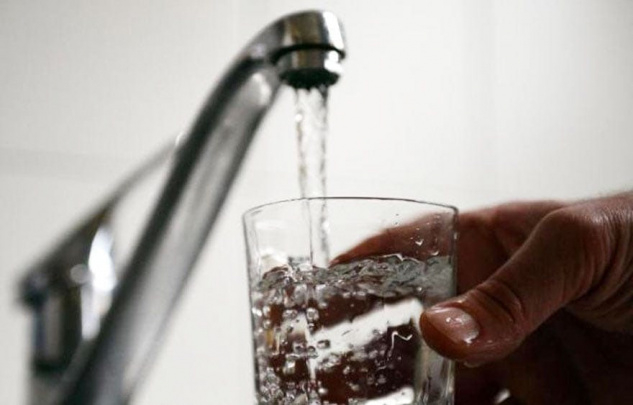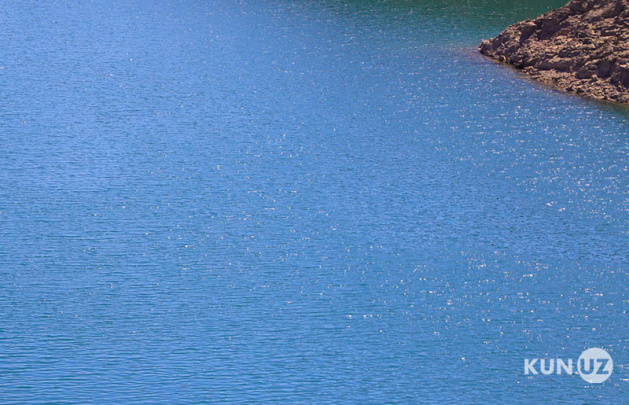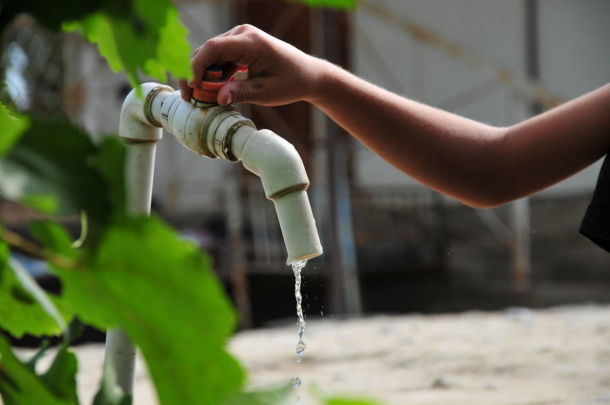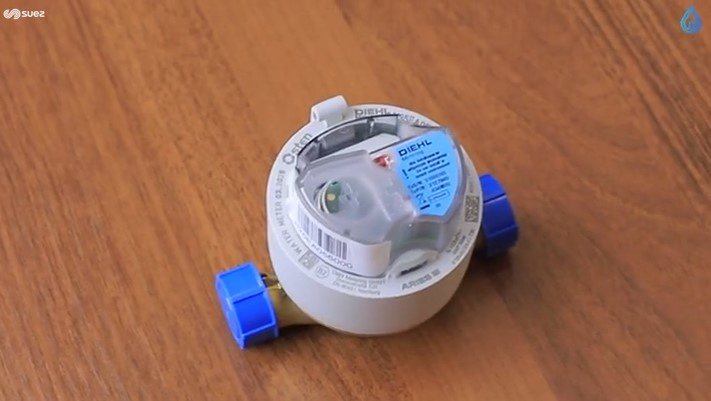Yuksalish movement criticizes water infrastructure; Uzsuvtaminot defends progress
The "Yuksalish" movement has criticized the work being done in the field of providing drinking water to the population. In response, "Uzsuvtaminot" refuted the claims, accusing "Yuksalish" of irresponsibility. Kun.uz invited both parties to its studio to present their positions to the public. However, only "Uzsuvtaminot" attended.

Shokir Sharipov, Journalist: Yesterday, the "Yuksalish" movement criticized the ongoing work in the sector, stating that "things are not going well." Could you elaborate on this?
Asiljon Muhiddinov, Head of Department at "Uzsuvtaminot" JSC: The "Yuksalish" nationwide movement conducted a study of drinking water and wastewater infrastructure projects, identifying several shortcomings and publicizing them. Upon re-examination, we found that their studies were conducted without adhering to specific procedures or legal regulations. When inspecting a construction site, it should involve specialists with relevant expertise and knowledge.
Sh. Sharipov: Let’s focus on the source of the criticism. What exactly are they criticizing, and what are your objections?
Islam Abdullaev, Head of the Board at "Uzsuvtaminot" JSC: Last year, in 2024, "Yuksalish" examined projects that were completed or under construction. Our follow-up review showed that their criticisms did not hold up. Their approach to the study was flawed. First, construction projects must be evaluated based on their design and cost estimates. Engineers and technical experts should conduct these assessments. For example, some projects were labeled as "incomplete."
Indeed, some of our projects remain unfinished but have been included in the 2025 socio-economic development program through relevant presidential decrees, with allocated budgets. Thus, construction started last year will continue this year, aiming for completion and commissioning by year-end. Most of the 37 projects they cited are transitional projects carried over from one year to the next, which they labeled as "incomplete." How can water be supplied to a network if the infrastructure is not yet finished?
Bakhtiyor Ergashev, Head of Department at "Uzsuvtaminot" JSC: Regarding the Dehqonobod project, "Yuksalish" recently claimed in their rebuttal that "although the project is complete, the population is not receiving water." In reality, there is no other water source in Dehqonobod. The residents are currently supplied with drinking water through this completed project. We have photographic and video evidence to support this. However, we couldn’t determine the basis for their claims.
Sh. Sharipov: We invited representatives of the "Yuksalish" movement here, but they chose to limit themselves to a general statement. Let’s broaden the discussion. Uzbekistan has taken loans exceeding $3 billion to improve drinking water and sewage systems. In general, what have we achieved so far?
Asiljon Muhiddinov: Every year, funds are allocated from the state budget and international financial institutions to improve drinking water and wastewater services. These funds are utilized to enhance water supply systems. In 2024, 1.1 million people gained access to drinking water, increasing coverage from 78% to nearly 81%. Behind these percentages lie significant efforts and substantial investments. Since 2017, over 20 trillion UZS have been allocated, raising water supply coverage from 63% to 81%. We aim to reach 90% coverage by 2030 at this pace.
We are also focused on reconstructing outdated water infrastructure, much of which was built in the 1960s and 1970s and requires repairs. In 2020, 25% of our water networks were in poor condition. Now, that figure has dropped to 19%, reducing the share of dilapidated networks by 6%. We plan to continue this process to meet our 2030 goals. Additionally, new technologies are being implemented to modernize the sector.
Despite being a large city, Guliston’s residents were previously supplied with water on a scheduled basis. Now, we are replacing nearly 76 kilometers of urban water networks without breaking a single meter of asphalt, using horizontal drilling techniques in a closed-trench method, preserving roads and surfaces.
Sh. Sharipov: So, the scale of the loans is directly tied to the extent of outdated infrastructure, correct? Many areas haven’t been updated since Soviet times, is that right?
Asiljon Muhiddinov: Yes. Previously, insufficient funds were allocated to the sector. Today, significant attention is being given, and we are upgrading outdated networks. In the past, foreign investors and international financial institutions showed little interest in the water sector, as investments were deemed unprofitable due to the sector’s unreliability. Now, with ongoing reforms, confidence and interest in the sector have grown, leading to partnerships with several international organizations.
We would like to kindly request, not only from "Yuksalish" but also from other public entities, that if there is interest in the sector, our doors are open. We are ready to visit project sites together and review each project in detail.
Large-scale efforts are underway. In water-scarce regions like Karakalpakstan and Khorezm, water is primarily sourced from surface supplies. Groundwater there is of poor quality with high salinity. We’ve introduced equipment to desalinate these sources, using modern technologies to provide potable water to the population.
In Dehqonobod’s district center, water is being supplied. Take Guzor district in Kashkadarya, for example. In 2020, its water supply coverage was only 2%, the lowest in the country. Today, it’s approaching 50%. This progress required significant funds and effort.
Sh. Sharipov: I know significant work is being done to provide schools with water and sanitation facilities. Where do we stand on this? Are there still schools without water?
Asiljon Muhiddinov: At the start of the year, we collaborated with the Ministry of Public Education to compile a list based on a survey. Last year alone, water was supplied to nearly 750 schools. We have a program based on this survey.
Sh. Sharipov: The public remains skeptical, and questions arise: with these colossal sums – over $3 billion – how is targeted spending ensured? How is corruption and misappropriation monitored? Who oversees this?
Ozod Norboev, Head of the Board at "Uzsuvtaminot" JSC: Starting with program development, "Uzsuvtaminot" JSC’s regional offices compile targeted lists for areas with poor water supply or outdated networks. These are submitted to regional councils of people’s deputies for approval. Decisions are ratified annually through the socio-economic and industrial infrastructure development program, approved by the president, with clear funding sources identified before construction begins.
Asiljon Muhiddinov: Construction oversight is managed by regional engineering companies with certified technical inspectors. Their primary task is to ensure compliance with urban planning norms and regulations during construction. Additionally, project organizations conduct continuous authorial oversight, and state inspections in the housing and utilities sector also monitor compliance.
Related News

16:05 / 06.08.2025
Water use in Tashkent far exceeds global norms

15:45 / 31.07.2025
Uzbekistan adopts Water Code to regulate use and protection of water resources

15:00 / 28.07.2025
New data shows regional disparities in Uzbekistan’s drinking water access

16:40 / 26.07.2025



